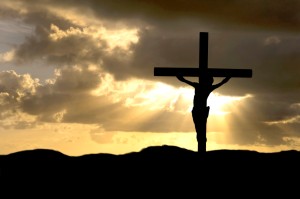Easter is more than a one-day celebration! Easter is a way of being in the world, an orientation toward life!
The challenge is living the resurrection in a world hellbent on crucifixion, addicted to evil, filled with suffering, and threatened by death.
Believing in the resurrection is difficult for some. Stories of the empty tomb and a Risen Christ defy logic and rational explanation. Cognition is swallowed up mystery.
I am no longer interested in arguing the factuality and historicity of the empty tomb. I’m intellectually content to live with the mystery of the Easter declaration, “Christ is Risen! Christ is Risen, indeed!”
I’m more interested in living Easter than “believing” it! In reality, only in living resurrection is it believed. Instead of “seeing is believing” it is “living is believing.”
I live daily with people whose capacity to cognitively believe Easter has been erased; yet, I see the truth of Easter in them every day. The Risen Christ shows up regularly in a fleeting smile, slight squeeze of the hand, momentary twinkle in the eye, and an unspoken invitation to enter their world and bear their burdens.
Here’s the bottom line for me: God acted decisively, convincingly, mysteriously, and timelessly in Jesus the Christ to conquer all forms of evil and death itself! In the death of Jesus, God took on the principalities and powers of this world AND GOD WON!
My primary concern is living the resurrection!
Here is what living resurrection means to me:
- Loving unconditionally amid hatred, bigotry, and exclusion
- Forgiving when the impulse for vengeance dominates
- Working for justice in a world of oppression and exploitation
- Entering solidarity with the vulnerable, powerless, and voiceless
- Building bridges of understanding and opportunity rather than walls of separation
- Practicing generosity amid economic uncertainty
- Living with integrity and honesty in the midst of corruption and dishonesty
- Putting the common good above personal advantage
- Treating everyone as a beloved child of God, made in the divine image
- Facing suffering and death with courage born of hope
- Living NOW in the light of God’s coming reign in Jesus Christ
Yes, living the resurrection is the great challenge of Easter. But the good news is this: The Resurrected One has already won the decisive victory!
The One whose resurrection Easter celebrates is with us as we live toward a resurrection future!



 Make no mistake about it: Every act of Jesus during what we call Holy Week was political!
Make no mistake about it: Every act of Jesus during what we call Holy Week was political!